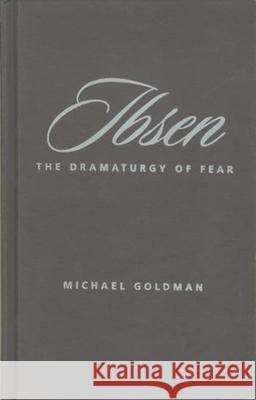Ibsen: The Dramaturgy of Fear » książka
Ibsen: The Dramaturgy of Fear
ISBN-13: 9780231113212 / Angielski / Miękka / 1998 / 160 str.
Although Henrik Ibsen is secure in his reputation as a major dramatist and intellectual figure, little attention has been given to the connections between his dramatic practice and his plays' powerful impact on audience and culture. Michael Goldman examines "how the play attacks us in the theater" and the means by which Ibsen assaults the audience's expectations and opinions. Focusing on specific features of Ibsen's dramaturgy that have been overlooked or underappreciated, Goldman looks at the plays' unsettling dialogue and driving plots, then explores the impacts on both character and audience when Ibsen's powerful vision takes effect. How does Ibsen illustrate a character's inner turmoil, and how is this quality realized by the actor on stage? What is the "spine"--the single, definitive phrase used by actors to pinpoint the dominant motivation-in A Doll's House? How does the stage design in The Wild Duck arouse the audience's curiosity? With considerable attention to these plays as well as The Master Builder and Peer Gynt, Goldman examines the characteristic "moments of crisis" and the striking similarities of gesture and language from play to play. Goldman discusses every aspect of Ibsen's art, from language, psychological motive, and narrative construct, to approaches used by actors and directors in play productions.











